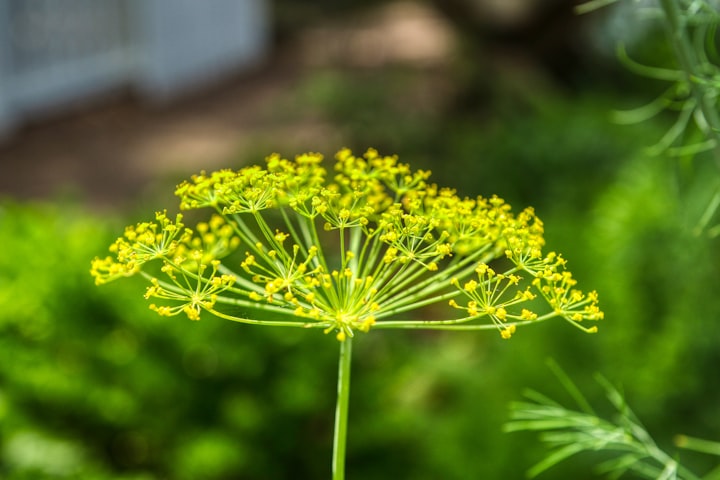Dill - Legend, and Source of Health
Do you like dill?

One of the favorite vegetables of the Romanians, dill, it seems, comes from Central Asia. For both ancient Egyptian doctors and healers who relied on traditional Chinese medicine, dill was, and is, prized for treating digestive disorders, especially those of children.
Dill seed stew was used to treat the colitis of the little ones, but also as a means of counteracting stomach gas or as a sedative.
In ancient cultures in Greece and Rome, this plant was seen as a sign of wealth or power. Roasted dill seeds were used to heal soldiers' wounds, thanks to their antiseptic qualities, which inhibited the growth of bacteria. It was customary to place the dill branches over the closed eyes before going to bed to make sleep easier.
Also, this greenery was a hardener used mainly by gladiators before engaging in battles in Roman arenas. The ancient Greeks sometimes wore a dill strap around their left wrist to remove epilepsy or other mental illness.
In the Middle Ages, dill was used in magical enchantments, to drive away clouds and lightning, but also as a means of protection against witches or evil spirits. The water scented with the leaves of this plant was considered a safe remedy against evil spells. On the other hand, dill is a basic ingredient in charms to win love or increase attractiveness.
Such a magical love recipe recommends bathing in water flavored with dill leaves. The tea from these fragrant leaves was indicated to ward off insomnia. Dill was often used to freshen the breath, but also to win the heart of the loved one. Placed in a child's crib, its leaves were endowed with the gift of protecting it from any harm.
According to an old German superstition, if you put some dill leaves over the front door, no person who envies you or is malicious towards you can enter or leave your house.
In the Romanian traditions, in the first bathwater of a newborn, dill leaves must be placed, among other things, in such a way that the child is as pleasant as this greenery in the food.
Associated with the planet Mercury and the primary element of fire, the legendary dill was sometimes carried in bags, as a talisman, an amulet for defense, or money. According to some superstitions, dill had the effect of giving new mothers more milk for their babies.
A similar belief exists today. I found it in some forums for women, in which it is said that this vegetable, tincture, or oil from its seeds has the potential to enlarge or strengthen the breasts.
It is known for certain that it has a beneficial effect in digestive diseases, and, especially in the form of a seed infusion, it has a diuretic, laxative, and expectorant effect. In other words, it stimulates the functioning of the kidneys, prevents the formation of kidney stones but also the appearance of cramps.
It is recommended for cystitis and kidney infections, against colitis, gastritis, indigestion, bloating, hypoacidity or flatulence. It has the ability to decrease appetite, being used, for this reason, in some diets.
If dill oil can be prescribed for flatulence, hemorrhoids, indigestion, heart disease, intestinal colic, anorexia, menstrual cramps, toning the body, against insomnia, hiccups, and vomiting in pregnant women, dill stalk, when chewed, is said that it causes a state of energization, helping to relieve nervous asthenia or headaches.
Nutritional data of Dill
Dill is considered one of the most valuable foods and yet 100 g of dill contains only 43 calories, but the amount of phytonutrients is the highest of all foods, whether it is nuts, legumes, cereals, or meat.
- 100 g of dill contains (% of RDA per 100 g):
- 37.5% of folates (vitamin B11),
- 14% of vitamin B6 (pyridoxine),
- 23% of riboflavin (vitamin B2),
- 140% of vitamin C,
- 257% of vitamin A,
- 21% calcium,
- 82% iron,
- 55% manganese.
(RDA - recommended daily dose)





Comments
There are no comments for this story
Be the first to respond and start the conversation.